15 items you can and CAN'T put in a skip
An expert guide to skip hire rules and etiquette
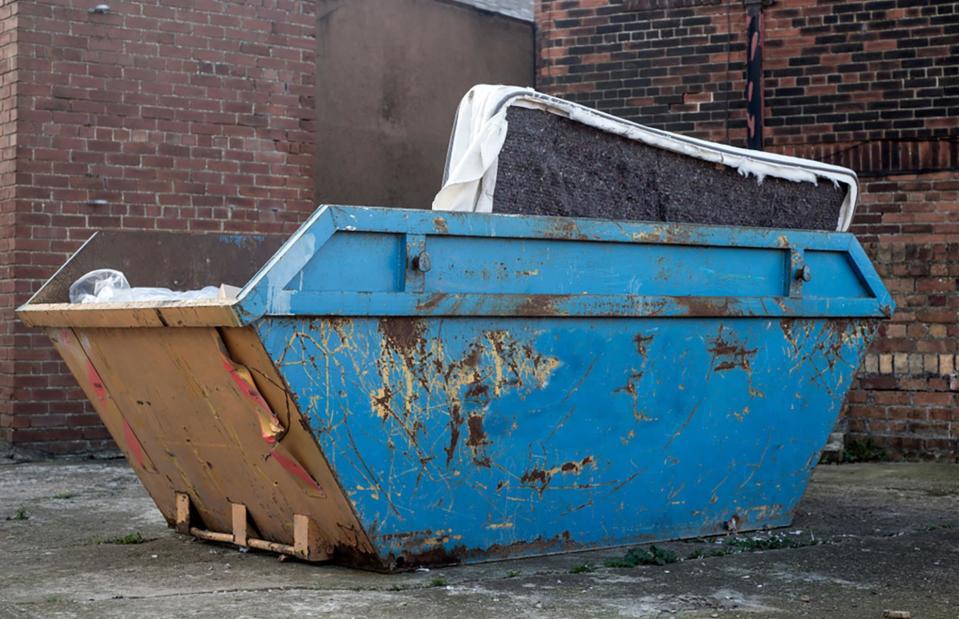
Skip & Bins
You might be forgiven for thinking you can throw any old thing you don't want in the skip, but you'd be wrong! Tighter controls by the Environment Agency (EA) mean you now have to give some serious thought to whether what you're throwing out should be going into landfill or whether there is a better way to dispose of it.
Read on as we try to clear up some of the confusion...
Get your priorities right
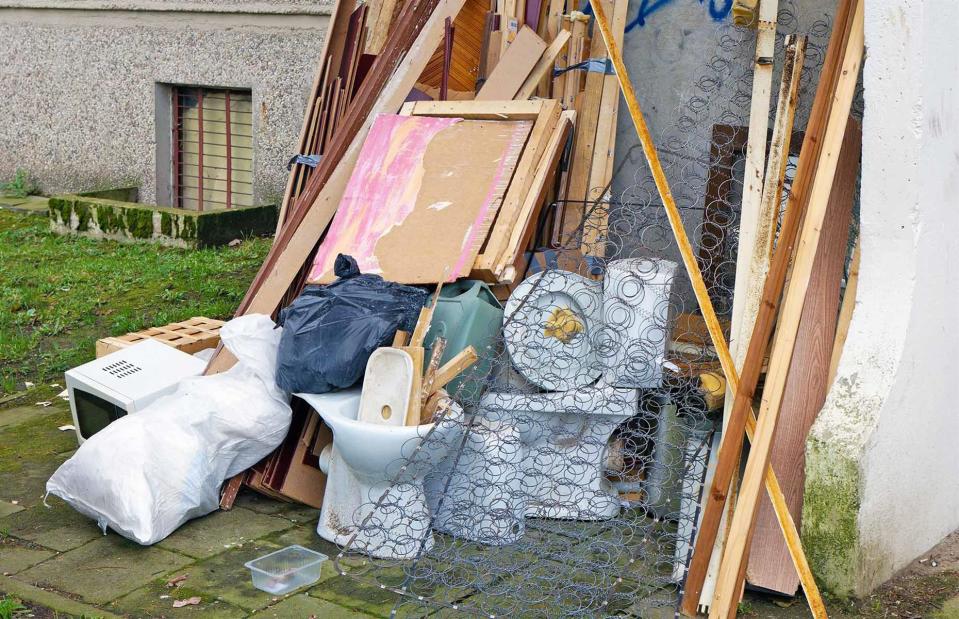
2019 vilax / Shutterstock
If you are one of the 10% of homeowners – according to Your Mortgage Expert – who are choosing to renovate rather than move due to rising mortgage costs, then you are probably closely watching your budget. However, disposing of waste, especially when it comes to skips, can cause confusion and even hidden costs. Scott Hawthorne, Managing Director at Skips and Bins, says: “Renovating your home takes a lot of effort and finding ways of disposing of the waste shouldn’t be the most difficult part. Your energy needs to be focused on the important work you are doing, not what is left over.”
How much does a skip cost?
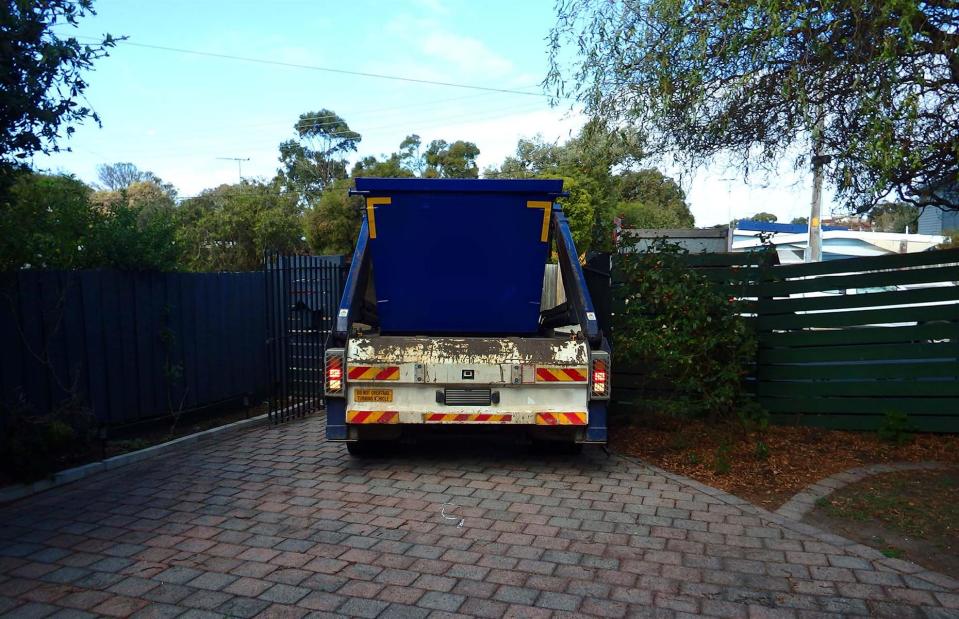
2018 Alex Farias / Shutterstock
According to Checkatrade, a builder-size skip (6-8 yards) costs between £210 and £400 to hire. For smaller clear-outs, you might get away with a mid-sized skip (£120–£260 for 4-5 yards) or even a mini skip (£60-£150). However, other factors will affect the skip-hire cost, including the region you live in and the duration of hire.
Where can I put my skip?
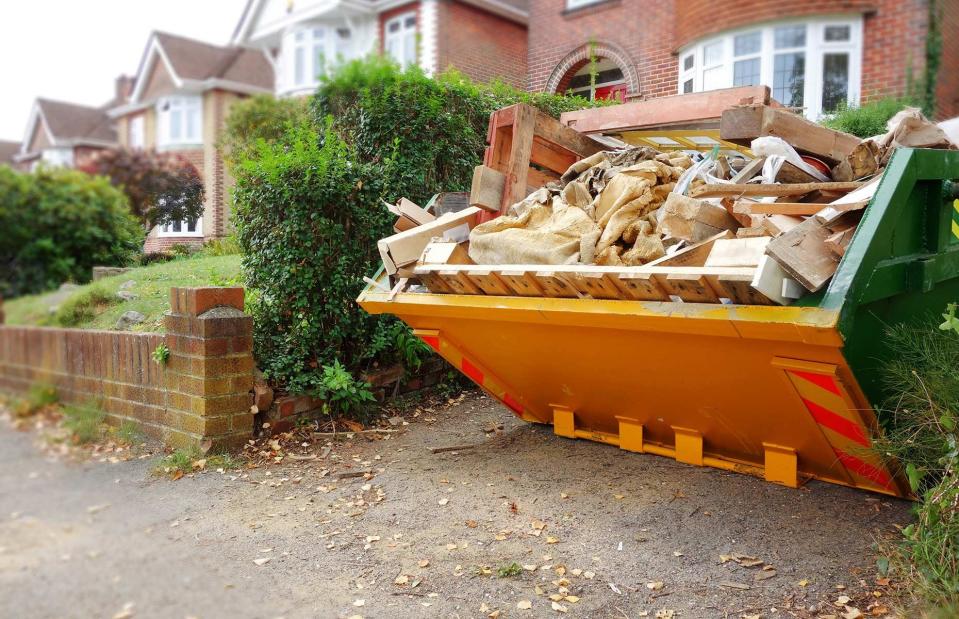
Charlie Goodall / Shutterstock
Before you order, consider where you will put your skip. Some local authorities require you to purchase a permit to put a skip on any public area, including roads, and failure to acquire one can result in a hefty fine of up to £1,000, according to Skips and Bins. You don't need a permit to put a skip on private property, such as a driveway, but it's polite to check with any neighbours who might be inconvenienced to head off any potential issues.
What are the rules?
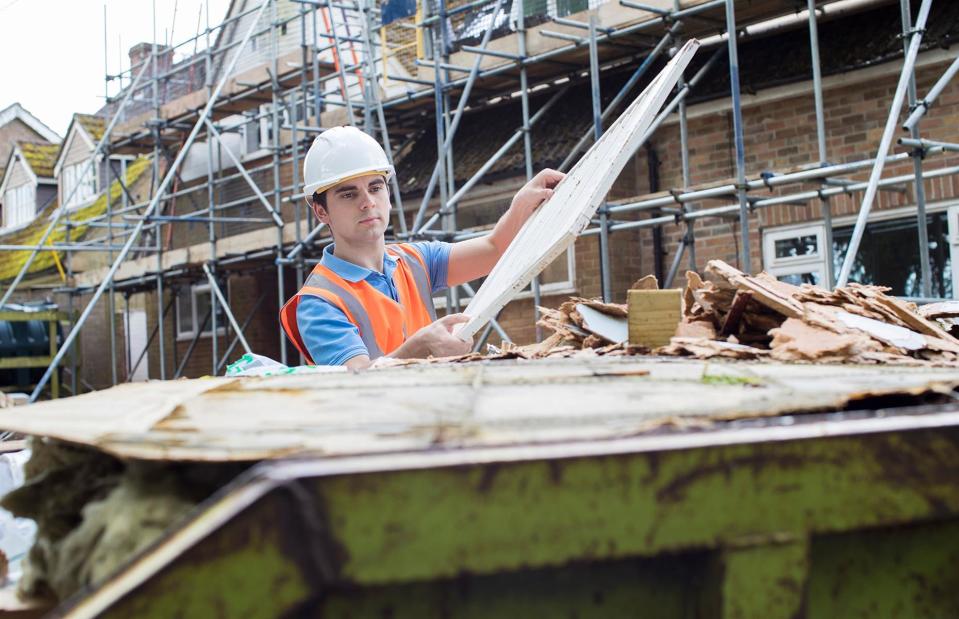
2017 Daisy Daisy/Shutterstock
While underestimating what size skip you need could mean you end up having to get two, some skip companies also charge a fee if you put things in it that shouldn’t be there. The rules are complicated, admits Scott Hawthorne: "Customers say rather facetiously, it seems you can’t put anything in a skip these days and to be honest it’s hard to disagree with the sentiment." However, we've created a basic guide to help you get it right first time...
What CAN go in a skip: carpet
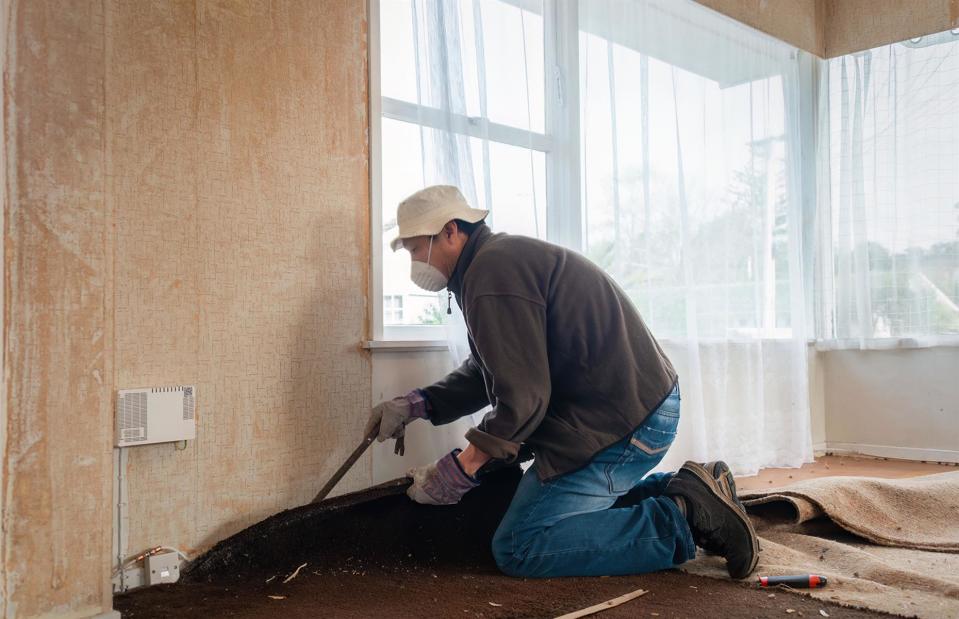
2023 Janice Chen / Shutterstock
If you’re getting new floors done and pulling up old carpet, then while this cannot go into your household waste, it is the perfect item to put in your skip. Rolling up bulky lengths or even cutting the carpet before it goes in the skip will make the most of the room you have, too.
What CAN go in a skip: wooden furniture
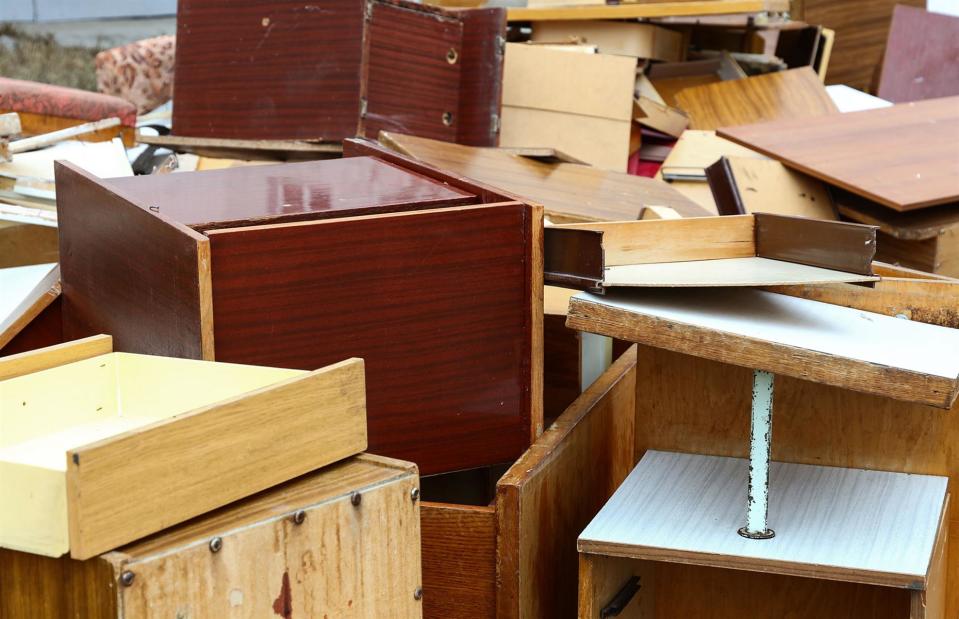
2020 Breaking The Walls / Shutterstock
Furniture that is past its best or that you’ve simply fallen out of love with can also go in the skip. However, if there’s a chance that someone might find use for it then consider donating it to a local charity such as the British Heart Foundation or a refuge, or giving it away through a local forum or community group. If it’s really had it, though, put it in the skip and break it up if you can to leave space for other things.
What CAN go in a skip: fabric and soft furnishings
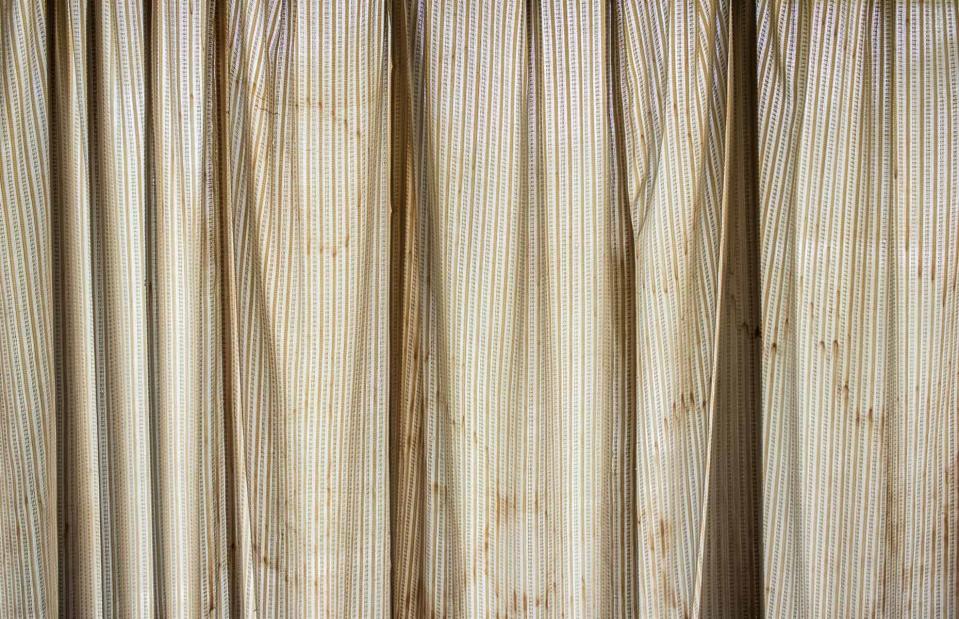
2018 Acambium64 / Shutterstock
Often the best place for old curtains and textiles is to take them to a charity shop or a recycling centre, but if yours are in a terrible way and of no use to anyone, then they can go in a skip. This also applies to other soft furnishings, such as tired duvets and tatty cushions.
What CAN go in a skip: kitchen units
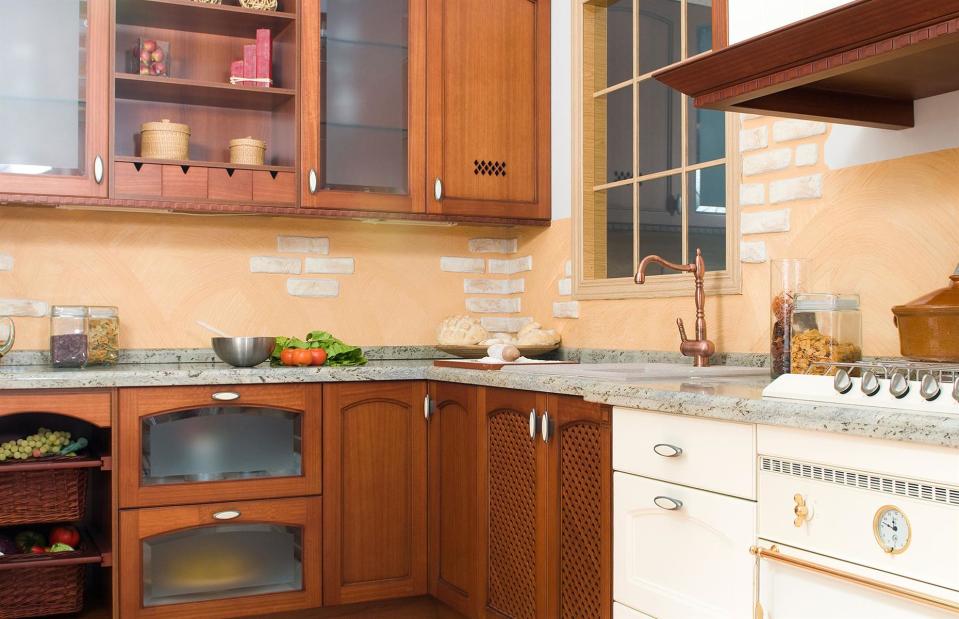
2010 tandem / Shutterstock
If you are getting a new kitchen then the good news is the consensus is that your old one can go in the skip. If it’s falling to bits, break it up as much as you can before it goes in (or ask your builder). If it’s still in good nick but just not your style, then it’s worth advertising on a local forum such as Facebook Marketplace or Gumtree, as someone might want to take it off your hands for a cheap price.
What CAN go in a skip: gas items
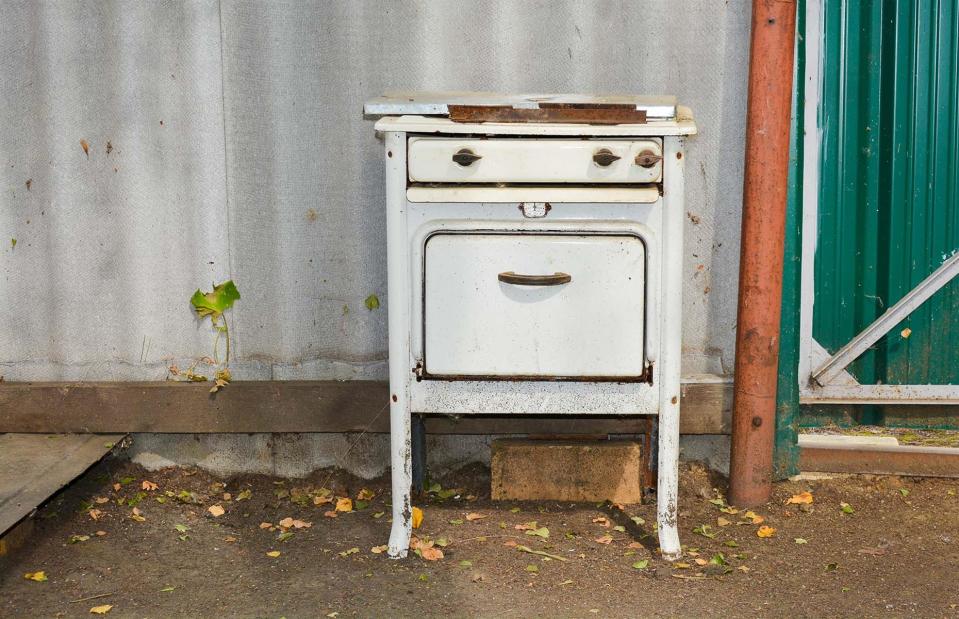
2016 Olga Vasilyeva / Shutterstock.
Skips and Bins says that gas items such as old cookers can also be safely placed into your skip, but make sure to check that the main gas line has been disconnected by a professional before you start removing that heavy hob. Having said that, it’s a big no-no to put in gas cylinders – whether full or empty – as these are still considered hazardous items.
What CAN go in a skip: bathroom suite
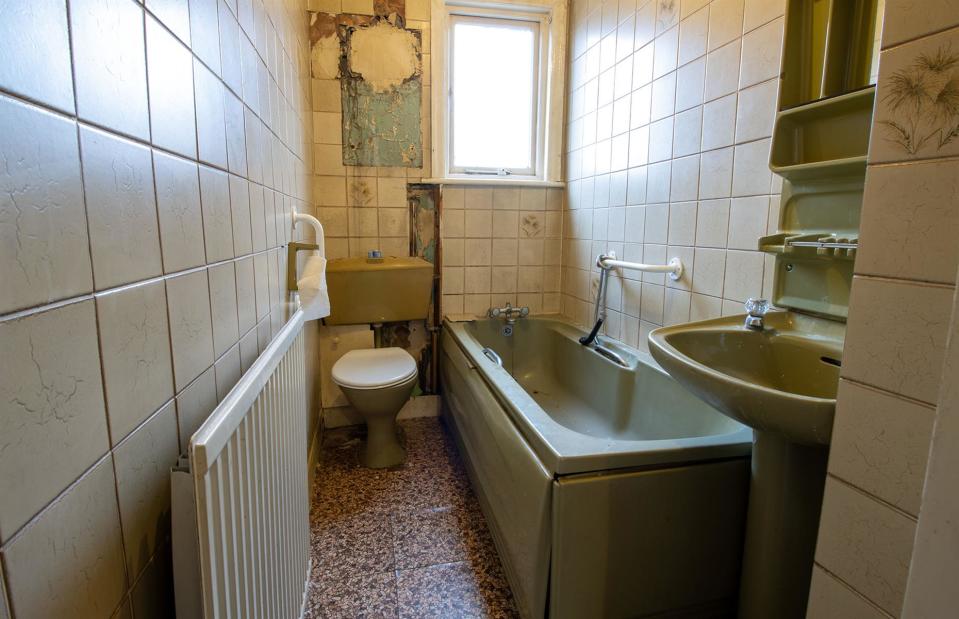
2020 LD Media UK / Shutterstock
Getting a new bathroom? You can get rid of your old suite – avocado varieties included – as ceramics such as toilets, sinks and baths are all OK to go in your skip. Whether it’s a DIY job or you’ve got builders on the case, it’s time for out with the old and in with the new.
What CAN go in a skip: tiles and bricks

2018 Aleksandar s co / Shutterstock
Whether you’re ripping out an old kitchen or bathroom or knocking down a wall, home renovations often result is unwanted wall and floor tiles, not to mention bricks and other construction waste. If they are still largely intact, they may be of use to someone, so it’s worth offering to neighbours or listing a job lot for sale, but otherwise feel free to put them in your skip.
What CAN go in a skip: garden furniture

2015 supirak jaisan / Shutterstock
Want to finally get rid of that rusty or broken bench in the garden? How about the climbing frame or swing set that have been used to within an inch of their lives? These items are all fine to go in the skip and just think of all that extra space you’ll have afterwards.
What CAN go in a skip: mattresses
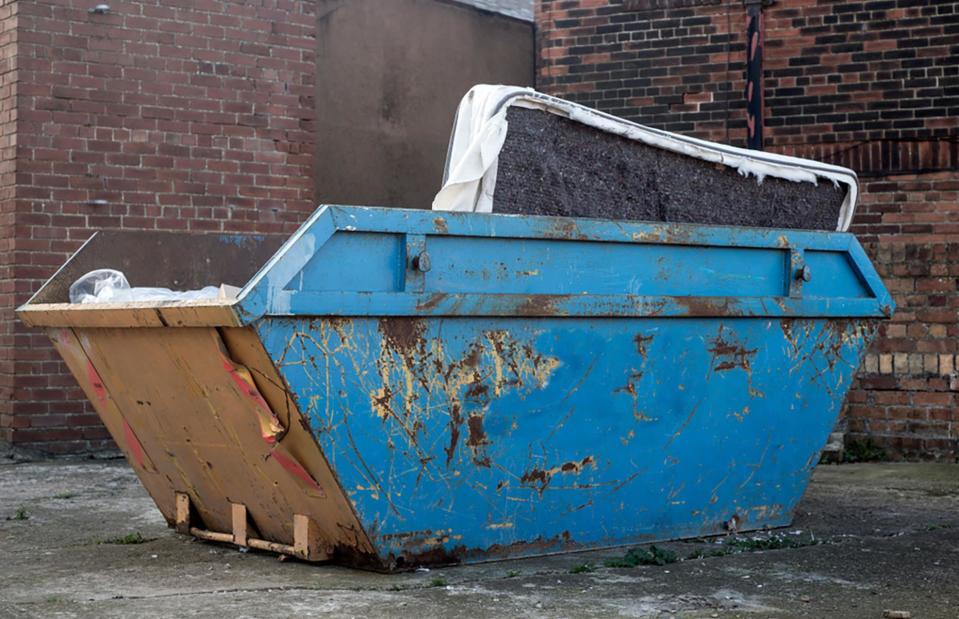
Skip & Bins
Buying a new mattress is one of the best shopping decisions you will ever make and that first night sleeping on it is pure bliss! But what to do with your old one? As of late 2022, the Environment Agency has classed them as POPs – Persistent Organic Pollutants and banned them from landfill disposal routes. This means some skip companies will now charge an extra fee to take them, while others could refuse them altogether, so you may wish to explore other options with your council first.
What CAN go in a skip: sofas
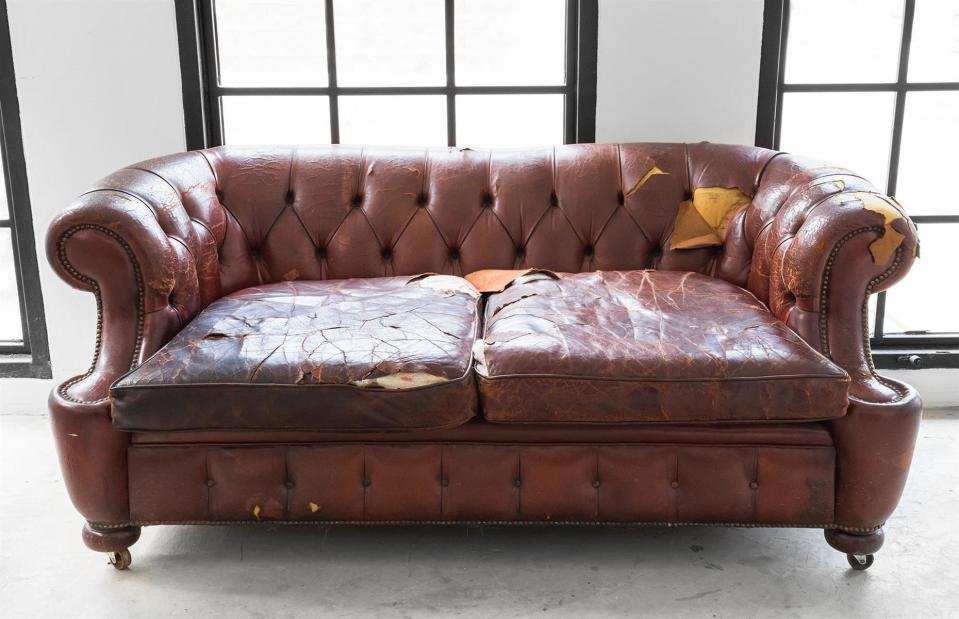
2018 kasarp studio / Shutterstock
Our sofas are used to lounge on for long stretches of time, to snuggle up with our pets and even as trampolines by the kids, meaning there often becomes a time when they’re done for. If your sofa has a saggy bottom rather than hugging yours, then it's time to say goodbye. Many skip companies do accept sofas, but be aware that some may charge an extra fee, so be sure to do your research.
What you should AVOID putting in a skip: electricals
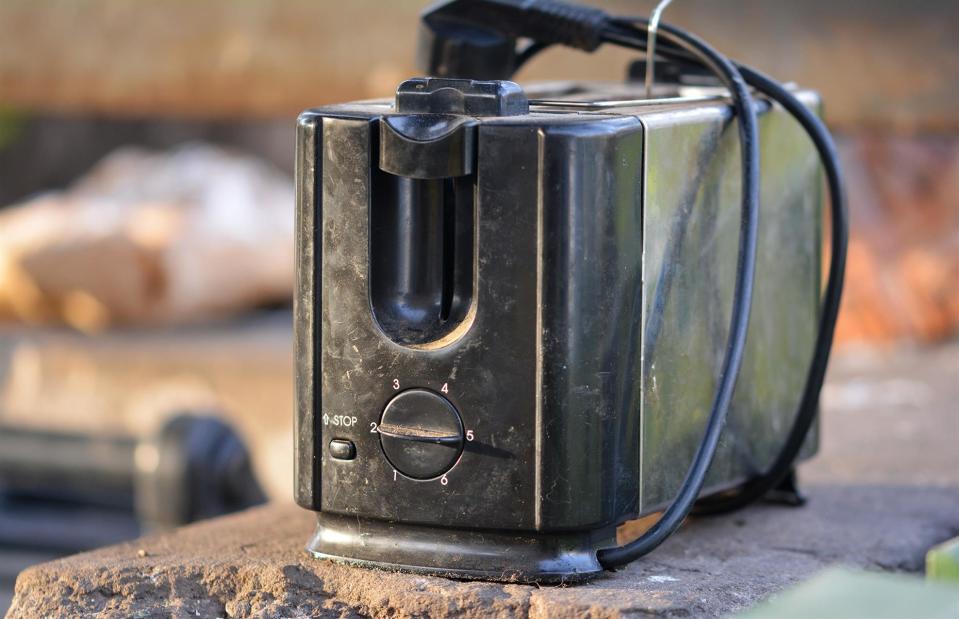
022 DarSzach / Shutterstock
Now for some bad news: old hi-fis or other electric goods, be they from the last decade or even the last century, cannot be placed in a skip. If they're still in good working order, ask your friends or family if they would like some vintage gadgets or donate to a local school or community centre. If you can’t find a new home for an item, then you may find that the manufacturer offers a recycling scheme or you can check with your local recycling bank.
What you should AVOID putting in a skip: paper and cardboard
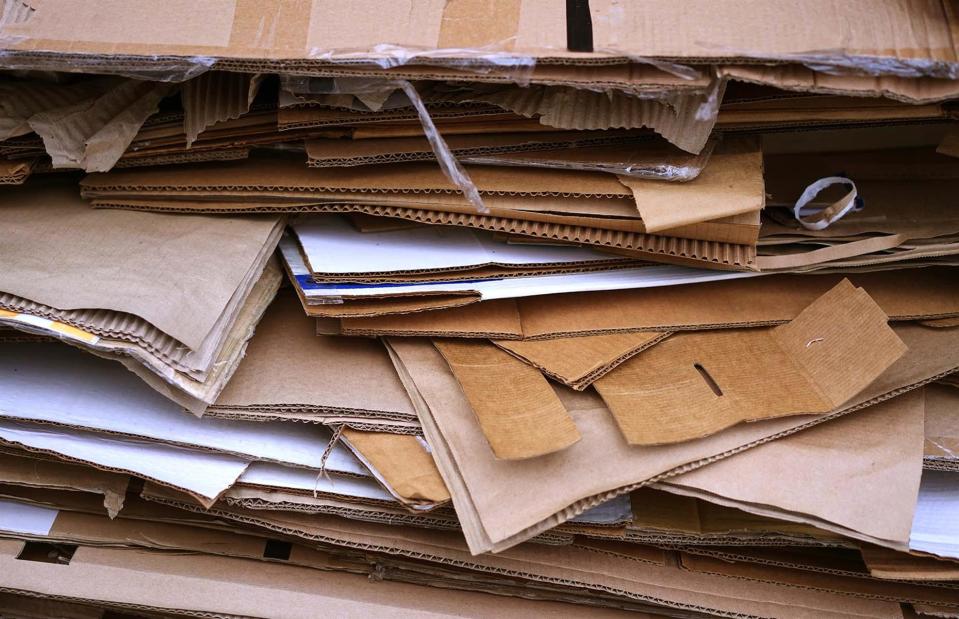
2017 John McLenaghan / Shutterstock
While it may be tempting to throw cardboard packaging and scrap paper in a skip, it’s not really the done thing as it’s so easy to recycle. Instead, you can split it gradually between your regular recycling collections or you can pay a visit to your local recycling centre. Repeat after us: reduce, recycle, reuse.
What you should AVOID putting in a skip: paint cans
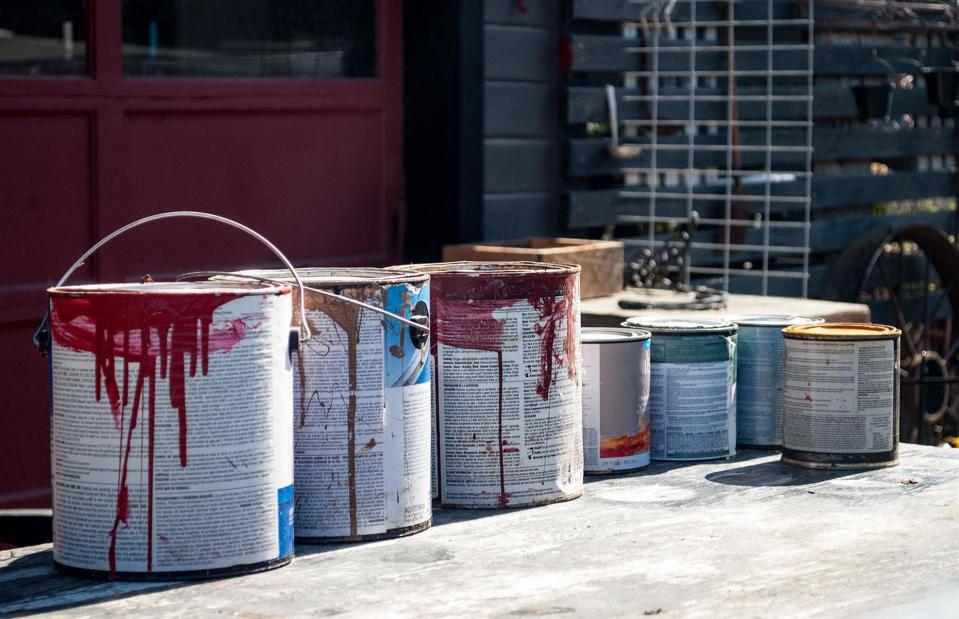
2017 CL Shebley / Shutterstock
Paint or cans that still have paint left in them are not allowed in skips. If you have space, consider keeping them for use at some other point in time – you’ll thank yourself when you need to do a touch-up job. Alternatively, Community RePaint is a UK-wide scheme that collects leftover paint and makes it available to community groups and families in social need. Remember to never pour paint down sinks or drains as it is damaging to the environment – and your pipes!
What you should AVOID putting in a skip: batteries
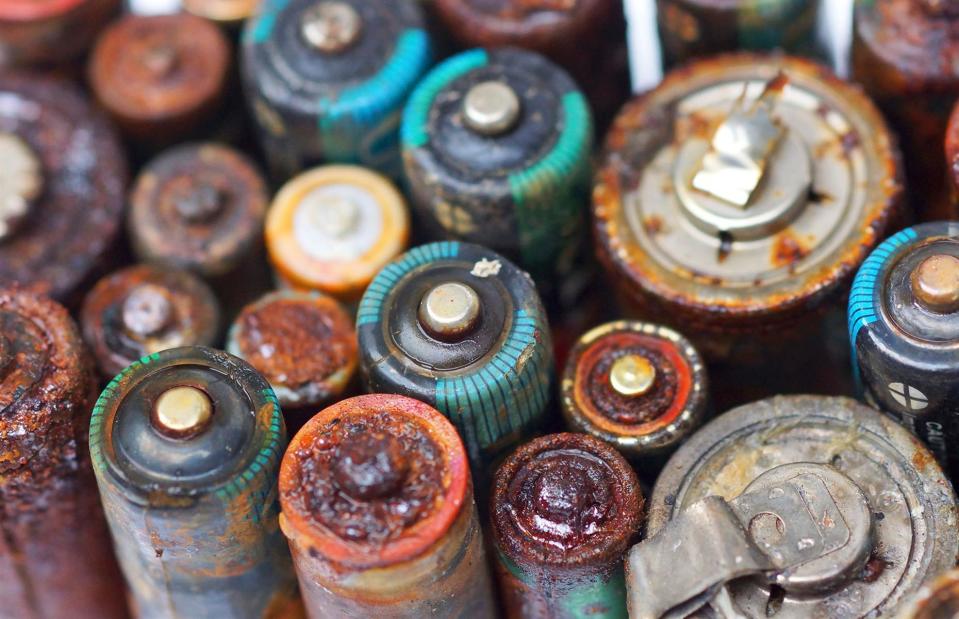
2018 wk1003mike / Shutterstock
We all have them lying around the house, cluttering our drawers, but as tempting as it might be, you cannot dispose of old batteries in a skip nor your normal household waste. Batteries contain lots of chemicals that can be harmful and should not go into landfill. Enfield Skips says: “These chemicals permeate through the soil and into water supplies, which we and other animals might consume.” Instead, send them to your local council’s battery bank.
What you should AVOID putting in a skip: asbestos
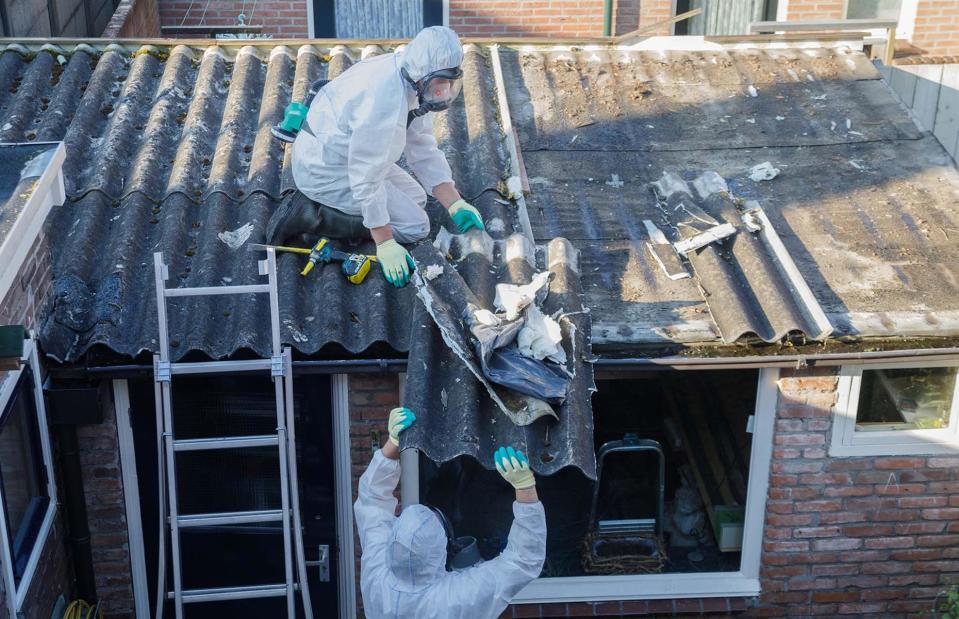
2019 Logtnest / Shutterstock
Some things shouldn’t need saying, but just in case: you cannot place anything with asbestos in a skip. It is hazardous waste that will not only contaminate everything else in your skip but is harmful to anyone who might encounter it. The only way to get rid of asbestos is through a reputable asbestos removal company.
Skip etiquette: dos and don’ts
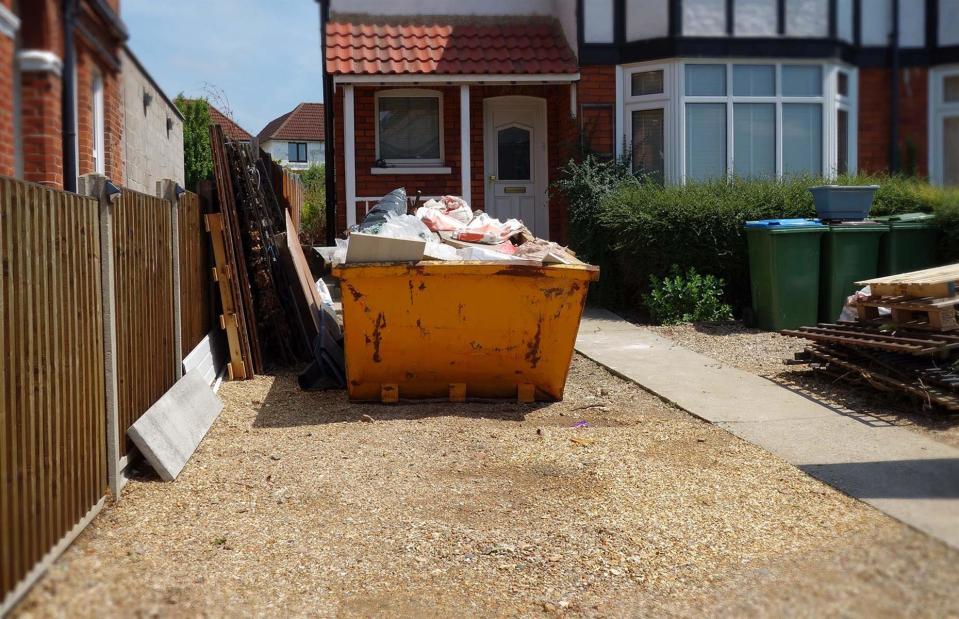
2019 Charlie Goodall / Shutterstock
Think your neighbours won’t mind you adding one more item to their skip? Don’t assume, always ask! Not only is it rude but it could be considered fly-tipping, which carries a hefty fine. Likewise, if you see something in a skip that you quite fancy for yourself, it’s worth asking before you take it – especially if you know them – as sometimes builders dump things they shouldn’t. And never take something that is simply placed near a skip as it might still be in use.


